

"Your dedication to this issue is making a better and
brighter tomorrow for our nation. I truly value your insight."
- Vice President Joseph R. Biden Jr. (2011)

- Home
- Videos
Videos
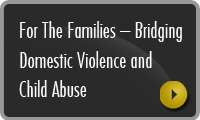 |
For too long, those in the field of domestic violence and those in the field of child abuse have failed to trust each other around one common cause: stopping violence in the families. For Families attempts to bridge that gap through the poignant stories of three families of survivors. Their experiences provide insight into how professionals in both fields can effectively intervene to keep mothers and children safe, while holding perpetrators accountable. Produced by National Children’s Alliance and developed with the support of the U.S. Department of Justice Office of Justice Programs, Office of Victims of Crime, Office of Juvenile Justice and Delinquency Prevention |
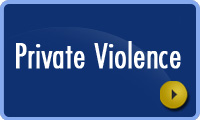 |
The Private Violence Project tackles the myths and misconceptions about domestic violence that make the world a dangerous place for one in four women and their families. Thirty-five years into the battered women’s movement, it’s time to start asking different questions and posing new solutions. A feature length documentary premiering in 2012 is at the heart of the projects mission. For the full version connect to: http://www.privateviolence.com/ |
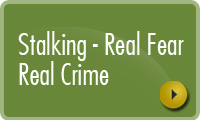 |
A training tape produced through the collaborative efforts of the National Center for Victims of Crime – Stalking Resource Center, Lifetime Television, and LMNO Productions. This 18-minute training tape was inspired by the tragic death of Peggy Klinke. www.ncvc.org/ |
 |
The purpose of the “I Wish the Hitting Would Stop” domestic violence education (video) program is to teach all children in a 4th or 5th grade classroom about the issue of domestic violence and its effects on children. |
 |
While it is not always possible to stop violence, children will learn ways to try to keep themselves safe and to identify people they can go to for help. They will learn that violence between other people is not their fault and they will learn skills for dealing with their own feelings of fear, sadness, hurt, anger and confusion in a positive way. It is believed the skills learned through this program will be applicable to other incidences of violence, not just domestic violence. |
 |
The goals of the program are to explain domestic violence in language and concepts that are age-appropriate and easily understood by 4th or 5th grade students, to give the children permission to talk about violence, and to provide an opportunity for the students to share their feelings and fears in a supportive setting. Produced by Red Flag Green Flag – Fargo, North Dakota |
 |
The Knoxville, Tennessee Family Justice Center serves domestic violence and sexual assault victims. This comprehensive support center provides co-located services for victims and their children including prosecutors, detectives, clergy and social service professionals. Family Justice Centers are being replicated across America and around the world. View for free or download -For more information contact: Knoxville Family Justice Center – 400 Harriet Tubman Street – Suite 219 – Knoxville, Tennessee 37915 865-215-6800 www.fjcknoxville.com |
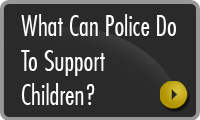 |
Many dangers and frustrations associated with police response to domestic violence are inherent in the law enforcement role. Knowledge about the dynamics of violence in intimate relationships may assist officers to respond in ways that are most useful and supportive to the victim. It may also help officers to understand why their best attempts to intervene are so often met with resistance, and to tolerate the reality that repetitive police interventions may be necessary. |
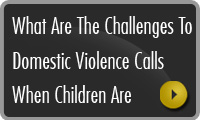 |
Understanding the potential benefits of intervening with children exposed to domestic violence may assist officers in feeling part of the solution and contributing to a meaningful community collaboration to reduce violence in future generations. |
 |
These training films were produced by the Centre for Children & Families in the Justice System (formerly the London Family Court Clinic) 254 Pall Mall St., Suite 200 – London, Ontario N6A 5P6 CANADA – Phone: 519-679-7250 – info@lfcc.on.ca |
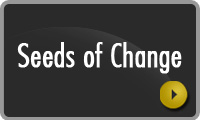 |
You Have the Power – Nashville, Tennessee – www.yhtp.org Watch how one community (Nashville, Tennessee) joined together to stop domestic violence. To stop this war at home they focused on five key elements, commitment to change, a domestic violence task force, strong leadership, mandatory training and on-going evaluation. These seeds of change will be tomorrow’s harvest. |
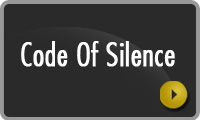 |
You Have the Power – Nashville, Tennessee 2007 – www.yhtp.org Mark Wynn narrates this film with two survivors of domestic violence who share their experiences of being battered by husbands who were police officers. They emphasize the need for law enforcement agencies to adopt a model policy establishing procedures for handling acts of domestic violence committed by police officers.“Sue” is still very afraid of her husband even though they have been divorced for 20 years. He regularly put loaded guns in her face and followed her wherever she went. On one occasion he put her hands around a knife and tried to force her to stab him. He told her he knew all the attorneys and judges and there was nothing she could do. She didn’t realize she was a victim of domestic violence until she decided to become a police officer and attended training on the domestic violence. |
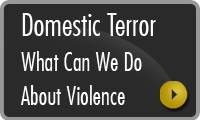 |
Domestic Terror – 1995 What Can We Do About Violence – Bill Moyers PBS A special highlighting the story of citizens and communities working to turn the tide of violence and keep their children safe. Presents information that highlights successful solutions — including adult mentoring, conflict resolution, parent training, peer education, alternative sentencing, violence prevention counseling, firearm safety, teen volunteerism, school-based services and community activism. Includes town hall discussions about the broader implications of dealing successfully with youth violence. This section highlights a view of domestic violence and solutions to the problem from Nashville, Tennessee. |
 |
Dateline NBC Cries For Help – 1992 This episode exams the impacts of exposure to domestic violence on children. |
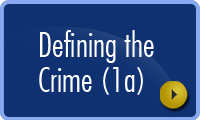 |
International Association of Chiefs of Police – The Crime of Human Trafficking: A Law Enforcement Guide to Identification and Investigation. With funding from the DOJ’s Office on Violence Against Women, the IACP has created a guidebook for law enforcement on the crime of human trafficking that covers the federal law, tools for identification, investigation and response, and resources for victim assistance. |
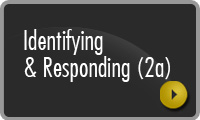 |
Training Guidebook The guidebook, which also has a pocket guide for field reference, is available in bulk, free of charge for law enforcement agencies and comes in both English and Spanish versions. To enhance this training, please use the guidebook in conjunction with the IACP roll-call video on human trafficking. Roll-Call Training Video to be used in conjunction with the guidebook on human trafficking. |
 |
This award-winning video was created to assist law enforcement in identification and investigation of this emerging crime, offer direction on how to best assist victims, and provide an overview of federal laws. Available in DVD and VHS formats, the video can be shown in three 8-10 minute segments and includes a discussion guide. The IACP video recently won the top prize at the 2007 Law Enforcement and Emergency Services Video Association (LEVA) Gold Shield Awards in the category of Specialized Productions. This training package can also be accessed through the IACP website, www.iacp.org or email stopviolence@theiacp.org. |
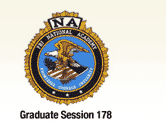

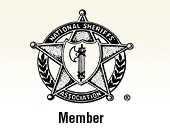
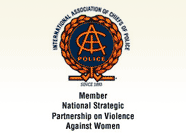
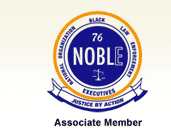
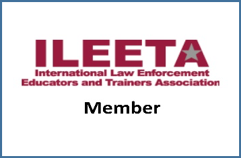
Mark Wynn Consulting | info@markwynn.com | 2500 Murfreesboro Road - Suite 105 - PMB 135 | Nashville, TN 37217
Phone: (615) 360-3994 | Fax: (615) 469-0823